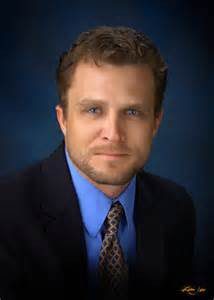
Dr. David Ley was recently interviewed by a reporter about sex addiction and the recent AASECT position statement. I have permission to post the writings he prepared for the interview. This is an EXCELLENT read! Excellent in helping explain that when we, as sex-positive and certified sex therapists, stand against sex addiction — we are not by any way excusing sexual behavior that harms individuals and/or relationships. In fact, it’s the opposite. We stand against sex addiction so that people can get the help they deserve and need depending on the presenting problems and relational context of each situation.
1. Where did the idea of “sex addiction” come from (if not from the medical community, as I understand it)?
Sex addiction is truly a social phenomenon, not a clinical or medical one. It’s important to understand that it largely arose after homosexuality was removed from the Diagnostic and Statistical Manual of the APA, and in response to the AIDS crisis. It’s not by accident that gay and bi men are at 3 times the risk of being labeled or diagnosed a sex addict. But here’s the thing, I truly believe most sex addiction therapists and writers aren’t bad people – they are trying to help people, people who are in pain and fear because of their sexual urges. In the early 80’s, as these social shifts were going on, traditional medical and mental health people really weren’t talking about sex any longer, and these people who were in pain and scared, found support from addictions therapists who said “we can treat the desire for sex like it’s a craving for drugs or alcohol.” They at least offered support and assistance to people who were terrified.
The problem is that sex isn’t like a drug or alcohol. No one ever died from blue balls, but long-term alcoholics can die if you take away alcohol. At a deeper level, what got glossed over in the zeal to offer support in the form of sex addiction treatment to these individuals, was that their pain and fear was often coming from social and moral struggles with sex. When a gay or bi man is taught to suppress their sexual desires for other men as an addiction, it pathologizes this desire, without ever acknowledging the degree to which the pain emerges from stigma, not the desire itself.
As these therapists then began to define what they thought unhealthy sex was, they based their theories on the select sample who came to them for treatment. Because most sex addiction therapists are themselves self-identified sex addicts in recovery, and they have no training in human sexuality, they base their diagnoses upon their own experiences, and those of the sample of people they see. For example, for a long time, sex addiction theorists have argued that daily sex or masturbation is unhealthy, because that’s a pattern they see in people they treat with sexual behavior problems. Unfortunately, they don’t see the great many people who have daily sex, and experience no problems. This criterion was finally dropped a few years ago, when it was demonstrated that a great many women use nightly masturbation to help them sleep, and that as many as 40% of males go through significant periods in life where they masturbate or have sex daily, all with no problems or consequences.

2.Why is it an issue to oversimplify sexual behavior issues as “sex addiction”? Basically, can you give some examples of harm from using this “diagnosis” versus another diagnosis?
So at this point, we have a wealth of information supporting the very real consequences of the sex addiction diagnosis. For instance, one recent study of sex addicts in treatment showed that 90% had a major mental health disorder such as anxiety or depression, and 60% had a paraphilia, a fetish or a sexual disorder. But, these individuals were receiving treatment for “sex addiction” as opposed to their depression, anxiety or sexual disorder.
Multiple other studies now reveal conclusively that sex addiction is a label rendered overwhelmingly on males (90-95% of sex addicts are males), and half of those males are white, heterosexual, religious (most often Christian and very high rates of Mormon) married males who are middle to upper class in income. This raises two significant issues: 1. Sex addiction is a label applied to diagnose the long-standing sexual privilege held by powerful, privileged males, who are allowed or excused from sexual misbehaviors. 2. There are huge issues here of religion. Religious therapists diagnose sex or porn addiction at far higher rates than secular therapists. Multiple studies now show that the self-identity as a sex/porn addict is predicted by one’s religious values about sex, not actually by frequency of sex. In other words, these folks don’t actually have more sex than others, they feel worse about it. That’s a values conflict, between the sexual values taught in many conservative religious traditions (I’ve seen this in Christians and Muslims for instance) and the sexual opportunities in porn, casual sex, hook-ups, etc., which are available in the modern world. In essence, it’s like the problem of abstinence-only education – we teach kids next to nothing about sex, then are surprised when they struggle with unhealthy sexual behaviors or feel out of control with regards to their sexual desires, because they were never taught to understand or self-manage them. The same is true for a great many people today, raised in highly religious environments, who then encounter the wide world of modern sexuality, and feel overwhelmed by the opportunities available.
In my practice, and that of other clinicians, we see a great many people harmed and confused by the label of sex addict. For instance:
•42 year-old male, father of five and a widower, who masturbating to heterosexual porn on a daily basis. Sought treatment for sex addiction because his minister assured him this was unhealthy and an addiction.
•56 year-old Catholic male who sought treatment after divorce, because he had been diagnosed as a sex addict for going on craigslist for casual sex, about one time a month. He used protection during these encounters, but felt enormous guilt because they were outside the type of committed, monogamous relationship he had been taught to seek.
•33 year-old female who felt she was addicted to fantasies of rape. She had a history of sexual trauma, and sometimes watched porn involving rough sex and fantasized about being raped. In therapy, we identified that her fantasies about rape occurred at times when she was struggling with feelings of low self-worth and needed to “beat herself up.”
•18 year old male from a highly religious family, who had just started college and was away from family for first time. Came to me, concerned he was addicted to masturbation. Turned out, he was only masturbating about once a week, but because he’d been taught that any masturbation was immoral and unhealthy and dangerous, he was terrified. He went online, and was diagnosed by sex addiction therapists and online group discussions.
In all of these cases, in research and clinical experiences, the sexual problems are only a symptom, and an indicator, of some other conflict, either in the person, or between the person’s desires and their social or relational context. Some sex addiction therapists agree with this, and say that sex addiction is not about sex. I agree, in part, but I point out that their diagnosis and treatment is unfortunately exclusively focused on controlling sexual behaviors and desires. I see countless people who feel shamed and deeply harmed when their normative, healthy sexual desires (such as daily masturbation) are termed a disease.
Josh Grubbs of Bowling Green University in OH has done remarkable longitudinal research demonstrating that seeing oneself as a sex/porn addict actually predicts greater life problems, regardless of the frequency of sex or porn. This means that the concept of addiction has gotten inextricably linked now to people’s sexual shame, and has become a damaging self-concept, that teaches people to fear their own sexual desires and needs. This is very sad, and is the unfortunate consequence of allowing sexual morality to blithely intrude into clinical practice.
3.What do you think will be the impact of the AASECT statement? For example, do you see this as having an impact on sex addiction rehab facilities?
It’s important to recognize that there are two issues here. First, there is the sex addiction industry itself, which is a strange, cult-like group of true believers who treat sex addiction as a faith. These folks feel under attack. They lash out at these efforts to exclude morality from treatment, and they simply don’t understand why people like me are concerned at their lack of knowledge of sexuality or sexual diversity. The great majority of sex addiction therapists have very conservative ideas about what sexual health is, and they will continue to fight to defend their right to judge other peoples’ sexuality. Sadly, their arguments and views often get adopted by conservative politicians who use them to enforce sexual morality on society. As we’ve seen in Utah, where porn addiction was declared a public health crisis, I fully expect we will see sex/porn addiction raised in political dialogues in coming years by a conservative, religious administration.
The sex addiction rehabs are a unique American animal, where people pay thousands of dollars for a treatment that insurance won’t cover, and for which there is no evidence of effectiveness. This is stunning – there’s absolutely NO research showing that sex addiction treatment actually works, or works better than treatment with a regular therapist that your insurance does cover. Those facilities have seen increased struggles of late, as a result of changes in the US healthcare system (Thanks Obama). But, they serve a purpose – where men who get in trouble for sexual behaviors, whether infidelity or the like, can “go away” with the public appearance that they are committed to “getting better.” Unfortunately, these patients are often deeply exploited, leaving treatment owing many thousands of dollars, and usually still struggling with the real psychiatric or social issues.
There’s another group of individuals, diagnosed as sex addicts or sent to sex addiction treatment, where these approaches are grossly inappropriate. Sex offenders, across our country, are being mislabeled as sex addicts, and offered probation as long as they attend sex addiction treatment. This is horrifically unethical and unsupported. There is not a single shred of evidence that one can reduce recidivism by treating pedophilia, or rape, or fetishistic behaviors such as exhibitionism as an addiction. In contrast, there are good, evidence-based treatments for treatment of sexual offending behaviors. It puts our communities at risk that judges, juries, lawyers and victims, don’t understand that these individuals are being sent to a form of treatment that is completely inadequate. I hope that the AASECT statement brings some attention to this.
But, in contrast to the sex addiction industry, there’s also the second issue, and the degree to which the concept of sex addiction has been unthinkingly, uncritically, accepted by modern society and the media. Most people who self-identify as sex addicts do so because they or their spouse read an article or saw a talk show about sex addiction. For years, media has covered sex addiction as though it’s real, despite its lack of credibility or scientific standing. When I first published The Myth of Sex Addiction, I was completely alone. I was horribly and personally attacked by the sex addiction industry true believers, who came after me in awful ways, with threats of lawsuits, death threats and incredible accusations (such as that I was an undiagnosed sex addict in denial). At this point, the belief in sex addiction is an identity issue, not a rational belief.
But now, thousands of members of AASECT have stood up and said that this isn’t good treatment, and there are hundreds and thousands of therapists around the world who feel similarly. In this statement, AASECT joined the American Psychiatric Association which had rejected sex addiction as a diagnosis for forty years. Now, the many people who don’t think sex is an addiction (and never did) have a foundation and backing to push back against this shaming, moralizing concept. Hopefully it changes the media’s approach as well.
You can listen to an interview I did with Dr. Ley on Mormon Sex Info: Myth of Sex Addiction










